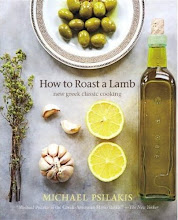A layer of these three humble vegetables, coarsely chopped and lightly sautéed in olive oil, is a perfect bed on which to roast my turkey. Chopped in a fine dice, used either raw, roasted or sautéed with butter or oil, you will find mirepoix in my Holiday dressing, sauces amd other side-dishes.
 Traditionally, the ratio for mirepoix is 2:1:1 of onions, celery, and carrots, but I vary that according to taste of the recipe.
Traditionally, the ratio for mirepoix is 2:1:1 of onions, celery, and carrots, but I vary that according to taste of the recipe.As I washed, peeled and chopped this morning, I wondered why this tridium of veggies was called mirepoix and if it meant different things in other types of cuisines.
My Food Lover’s Companion explained that there are many similar combinations, both in and out of the French culinary repertoire. Other combos may include leeks, parsnips, garlic, tomatoes, shallots, mushrooms, bell peppers, chilies, and ginger.

For the combination mirepoix au gras or Matignon, lardons or bacon are used as additional ingredients. When a mirepoix is used for making a fond blanc or white base, parsnips or pale mushrooms are substitued for carrots in order to keep the creamy color of the resulting dish.
I use fond blanc with mushrooms for making my white chicken stock that I use in risotto for that very reason.
I use fond blanc with mushrooms for making my white chicken stock that I use in risotto for that very reason.
In Cajun cuisine, a mirepoix is called “The Trinity” and is a combination of onions, celery and sweet bell peppers.
Soffritto is made both in Spain and Italy with similar ingredients, of anise seeds sautéed in pork fat then the aromatics of onions, green peppers, garlic are added. Soffritto means sub-fried, so the ingredients simmer in an emulsion of oil and very little water until the mixture becomes thick.
A chef at a local Hispanic restaurant explained to me that he makes Soffrito (slightly different spelling) with red onions, tomatoes and a Goya brand seasoning called Sazon. Sazon Goya is a mixture of salt, garlic, cumin, coloring, coriander, annatto, oregano, turmeric, black pepper, and lemon or bitter orange. He uses this savory starter that is also called a mir pua (mirepoix) as a base for Latin dishes
The Catalan sofregit of olive oil, tomatoes, and slowly carmelized onions is present in almost every sauced and stewed dish.
 The town of Mirepoix in the Languedoc region
The town of Mirepoix in the Languedoc regionMirepoix derives its name as many other elements of French cuisine from the patron of the chef who established it. My Oxford Companion to Food states that the chef de cuisine of the duc de Lévis-Mirepoix established the sautéed three vegetables that served as a basis for his culinary art. Since the 11th century this tridium of vegetables honors his patron.

Lévis-Mirepoix of the Languedoc region was a maréchal de France and ambassador of Louis XV.
The famed 19th century publisher Pierre Larousse called duc de Mirepoix “an incompetent individual…who owed his fortune to the affection that Louis XV felt for his wife.” Sounds as though Larousse had a major case of sour-grapes because he never had a any culinary combination or dish named after him.

The famed 19th century publisher Pierre Larousse called duc de Mirepoix “an incompetent individual…who owed his fortune to the affection that Louis XV felt for his wife.” Sounds as though Larousse had a major case of sour-grapes because he never had a any culinary combination or dish named after him.

I imagine that I will never look at the simple combination of carrots, onions and celery in the same way again, but as finely diced bits of history.









3 comments:
Thank you for doing the research for me - fascinating! Amazing the cross-cultural appeal of this combination - as though the taste for it were genetically programmed. I had never thought to do "white" chicken stock for my rissotto....will try it one day when I'm retired. Right now, I'm doing well to do 2 giant batches of chicken stock a year and freeze it in usable portions....much of the stock I do is based on the leftover carcasses of my local supermarket roasted chicken - the working woman's nirvana!
Yummy intriging story.
Where is the final dish?
I'm salivating...
Bon Fete MT
Merci Jeanette and Carol for yout very kind comments...
Mirepoix is in my mise-en-place for many, many dishes, soups, stocks and on to infinity. This post was not meant to be about one specific dish, but the versitility of mirepoix in itself.
Bon Fête et bisous,
Thérèse-Marie
Post a Comment